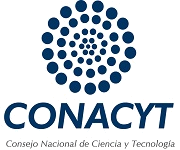Thin film composites of polyallylamine-silver
Keywords:
Polyallylamine, Silver, PlasmaAbstract
Two fundamental elements of a surface must be considered when biomaterials are synthesized, chemical composition and roughness. Both elements will determine the hydrophilic nature of the material, which is essential for their acceptance or rejection in a living organism. In this work, morphology and wettability of polyallylamine-silver thin films synthesized by plasma were studied using microscopic techniques to evaluate their hydrophilic or hydrophobic nature and to find suitable synthesis conditions to obtain acceptable biomaterials. By means of glow discharges, polymers and composites with different metal concentrations were synthesized, where the roughness could be controlled by synthesis conditions, such as pressure, gas composition, gas flow rate and power density inside the plasma reactor. Surfaces with nano and micro-structured roughness are observed varying from hydrophobic until hydrophilic nature.
References
. R. A. Meyers, C. C. Perry. Encyclopedia of Physical Science and Technology. Biotechnology, (Academic Press, USA, 2001).
. E. Poncin-Epaillard, G. Legeay. J. Biomater. Sci., Polym. Ed. 14 (10), 1005 (2003).
. B. D. Ratner. J. Mol. Recogn. 9, 617 (1996).
. T. Otero, M.T. Cortez. Adv. Mater. 15, 279 (2003).
. E. Colín, M. G. Olayo, G. J. Cruz, L. Carapia, J. Morales, R. Olayo. Prog. Org. Coat. 64, 322 (2009).
. G. J. Cruz, J. C. Palacios, M. G. Olayo, J. Morales, R. Olayo, J. Appl. Polym. Sci. 93, 1031 (2004).
. J. C. Palacios, G. J. Cruz, M. G. Olayo, J. A. Chávez-Carvayar. Surf. Coat. Technol. 203, 3032 (2009).
. L. Zhang, H. Chen, J. Sun. J. Shen, Chem. Mater. 19, 948 (2007).
Downloads
Published
Issue
Section
License
©2025 by the authors; licensee SMCTSM, Mexico. This article is an open access article distributed under the terms and conditions of the Creative Commons Attribution license (http://creativecommons.org/licenses/by/4.0/).





